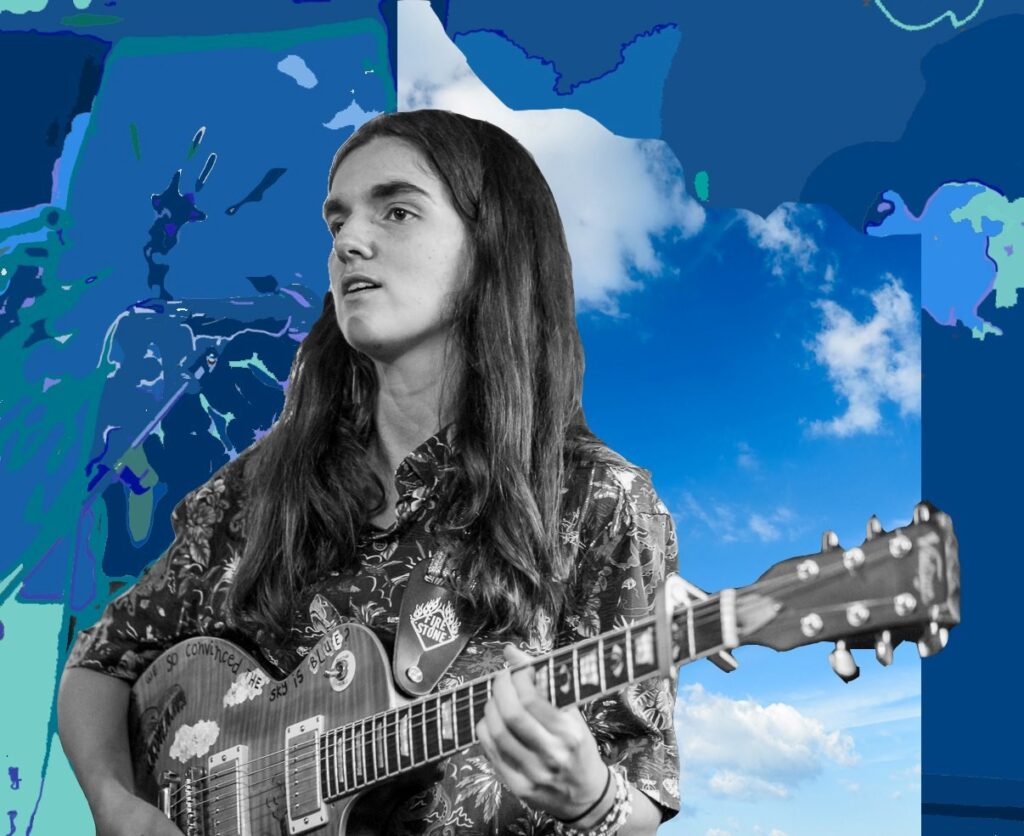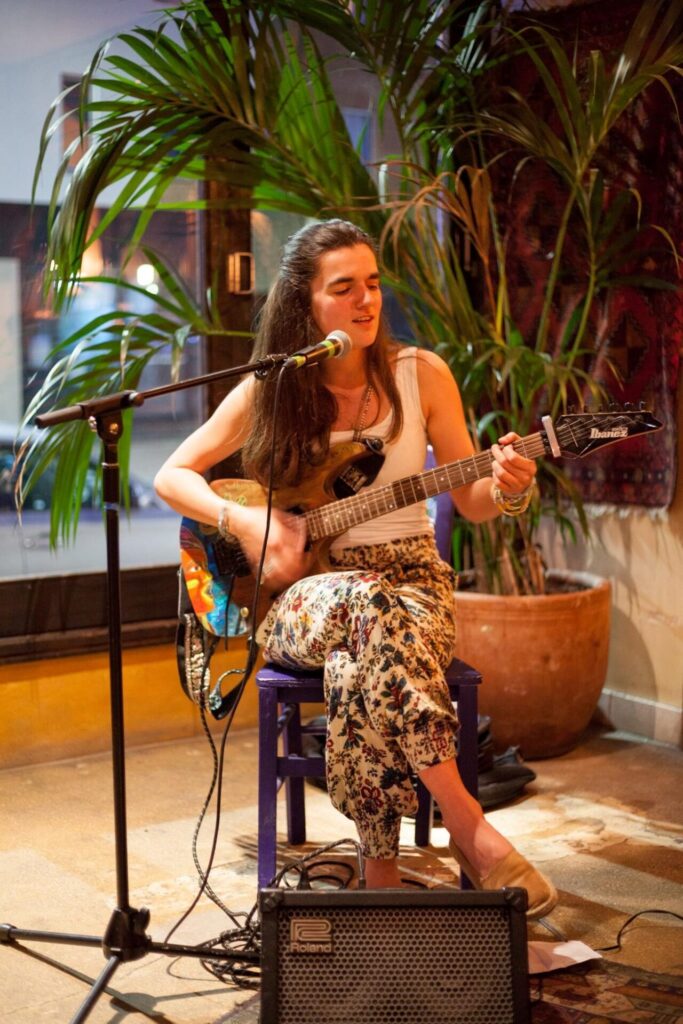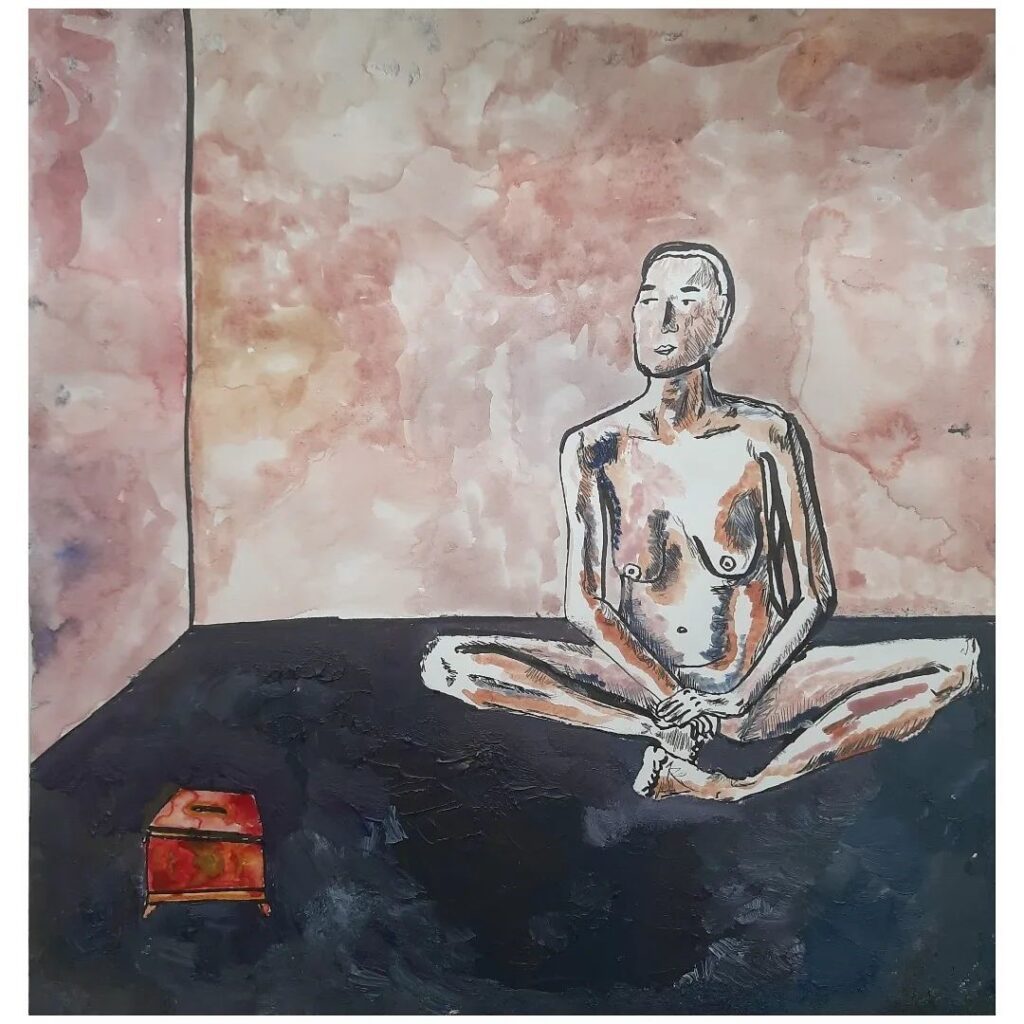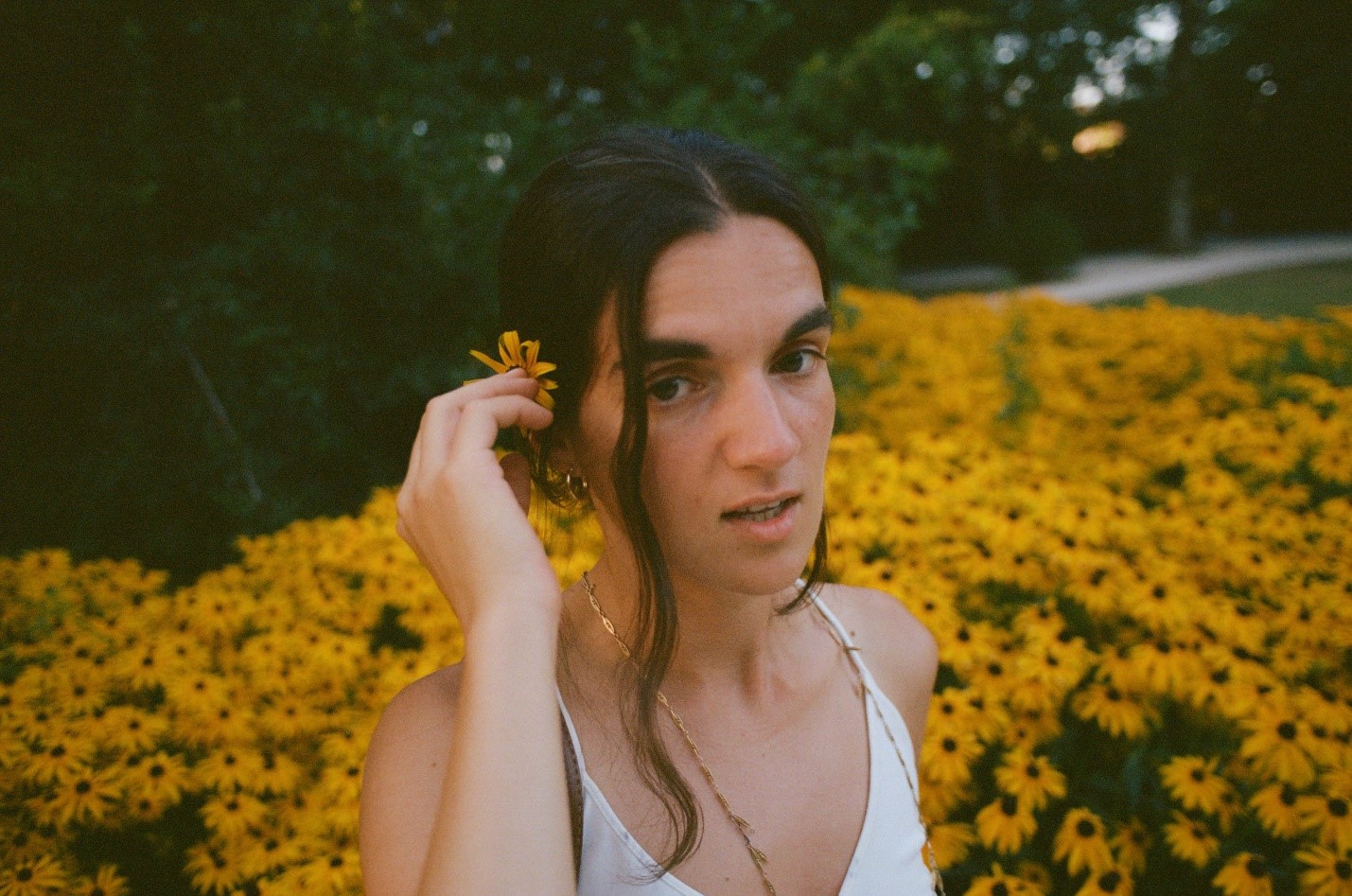Swiss-Dutch artist Naomi Pacifique is active in the fields of poetry, music, film, and visual arts. Her music is greatly influenced by both literature and film because she studied creative writing at Oxford University and filmmaking at the London Film School. Poets like Alejandra Pizarnik, Anne Carson, and Sharon Olds have influenced her interest in words that break into private spaces as they move toward their own limits. While the structures of her songs continue to be influenced by the way that filmmakers like Lucretia Martel, Jaques Tati, and Apichatpong Weerasethakul deal with repetition and interruption within time.
The raw vocals of Big Thief, Courtney Barnett, and Kurt Vile, as well as the playful instrumentation of The Brian Jonestown Massacre, CAN, Cate Le Bon, and Yo La Tengo, are some recent musical influences. Naomi currently resides in Amsterdam, where she founded Idle Eye with Rafael Manuel and Albert Kuhn as a collective and film production company.
On July 1st, 2022, an experimental, lo-fi rock song titled “was it the dregs of night” that explores the potential problems of polyamory was released. The song draws inspiration from artists like Khruangbhin, Courtney Barnett, and Kurt Vile. The song was written with the patterns and rhythms of a tornado in mind, thinking of both the downward and upward movements of the wind: forces pushing against one another to move forward in an abysmal dance. The song aims to foster intimacy with its listener by focusing on this. Check out the song and the exclusive interview below:

1. Can you tell us a bit about where you come from and how it all got started?
NAOMI PACIFIQUE: I’m Swiss-Dutch with a principle background in literature. I grew up in Lausanne. I started playing guitar when I was 13 years old and heard Taylor Swift one night. I picked up my guitar and tried to learn to sing and play ‘Teardrops on my Guitar’, by her, and there was no going back after that.
2. Did you have any formal training or are you self-taught?
NAOMI PACIFIQUE: I had some guitar lessons in high school for 3-4 years but I wasn’t such a good student. Most progress came after in my self-taught years. Covid was good for that. I also did 2 years of singing class in high school which did help me to hone in on my voice’s strengths.
3. Who were your first and strongest musical influences and why the name ‘NAOMI PACIFIQUE’?
NAOMI PACIFIQUE: Naomi Pacifique is my birth name, it’s my first name and middle name, I just scrapped the family name, so I have my parents to thank for the artist name. I was born in Costa-Rica in Clinica Pacifica, so my second name has something to do with that too. My first strongest musical influences are Black Eyed Peas, who I listed to on repeat for many years and Americana, particularly ‘Horse with no name’ whose lyrics I loved from early on.
4. What do you feel are the key elements in your music that should resonate with listeners, and how would you personally describe your sound?
NAOMI PACIFIQUE: I would describe my sound as experimental pop-rock. I hope the lyrics resonate and I hope that listeners are able to bathe inside them. Most of my songs intend to replicate intimate spaces I have experienced, and I would like to bring my listeners into these.

5. Creative work in a studio or home environment, or interaction with a live audience? Which of these two options excites you most, and why?
NAOMI PACIFIQUE:
I prefer home environments for recording, or DIY setups in own rehearsal studios as I feel that gives more space and time for experimentation. Time at a studio costs money and that doesn’t work so well for my process at the moment. I love live audiences too, some of my favourite periods of life were when I was regularly performing at places where interaction with audience was possible.
6. What’s your view on the role and function of music as political, cultural, spiritual, and/or social vehicles – and do you try and affront any of these themes in your work, or are you purely interested in music as an expression of technical artistry, personal narrative, and entertainment?
NAOMI PACIFIQUE:
I think music has a big part to play in the spaces you mention. Most recently, I love Stromaé’s ‘Sollassitude’. He gets stadiums full of people to repeat with him, in French “Single life makes me suffer solitude, Life in couple makes me suffer of boredom”, which sounds better in French, “Le celibar me souffrir de solitude, la vie de couple me fait souffrir de lassitude”. I’m working and researching non-monogamy a lot in my film work at the moment and I think that to be able to get people to sing such a line on repeat can have a real impact on individual lives – it might make people question given norms on quite a subconscious level – which is hard to put into numbers. And how many of us when falling in love have built playlists on Spotify with our intimate others? Musicians have the possibility of penetrating and shaping some of the most intimate parts of our lives. Music hits us somewhere deep. Trance and techno open people up to a side of themselves they don’t know, a side some have related to returning to shamanism or more tribal culture. I think music, when taken seriously, can have huge political, cultural, social and spiritual impact.
7. Do you feel that your music is giving you back just as much fulfillment as the amount of work you are putting into it or are you expecting something more, or different in the future?
NAOMI PACIFIQUE:
Music has always been a big part of my life. I’ve been writing songs for much longer than making films (nearly a decade longer!) even though filmmaking is what I do professionally now. I don’t expect much more from music but I hope to be able to learn to release it better and to keep meeting people I can connect with through it.
8. Could you describe your creative processes? How do usually start, and go about shaping ideas into a completed song? Do you usually start with a tune, a beat, or a narrative in your head? And do you collaborate with others in this process?
NAOMI PACIFIQUE:
It’s changed over the years. Right now, a song usually comes to me when I’m playing around on my guitar. Then I either start improvising some lyrics to it or open my notebook where all my poetry is and find a poem that could go on top of it. If there’s no guitar in the song, the elements will come together in my head and I’ll try it out on Ableton before calling it a song.
9. Do you think is it important for fans of your music to understand the real story and message driving each of your songs, or do you think everyone should be free to interpret your songs in their own personal way?
NAOMI PACIFIQUE: Once the song is out, it’s no longer mine, it’s yours.
10. On the contrary, what would you consider a successful, proud or significant point in your life or music career so far?
NAOMI PACIFIQUE: I think the way it accompanies me on the daily, some of the encounters it’s allowed, sharing it with people I have written it about, it allowing me to realize how I feel about something or someone, and being able to jam with others: to connect without words is a special thing.
KEEP IN TOUCH:
FACEBOOK | INSTAGRAM | SPOTIFY | BANDCAMP | WEBSITE | YOUTUBE

Photo credits: Beatriz Ferreira, Dani Huda
